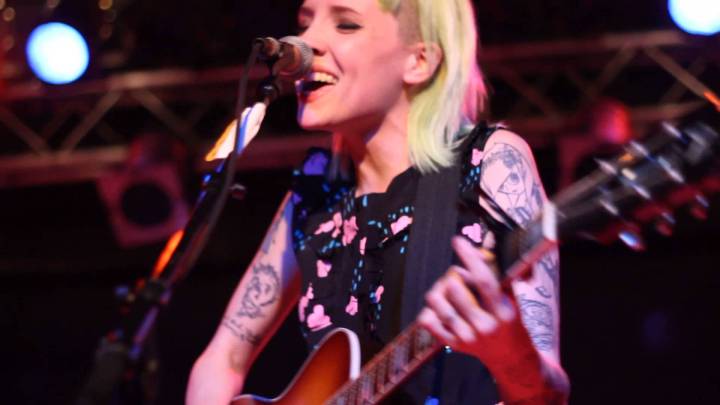
When I was a kid, my best friend lived down the street. Ours was that kind of inseparable childhood friendship where we hung out pretty much every day, no matter what. We played with Legos and video games and on the same hockey team. We knew each other’s immediate and extended families almost as well as our own. Of the five phone numbers that I still have memorized, one is for that house where he grew up and where his parents still live, down the street from where my parents still live. It’s all very quaint and midwestern.
Eventually we grew up, taking our own separate paths through the latter half of adolescence and into adulthood. Though we grew apart as we were learning how to handle the intellectual and emotional challenges of being adults, we’ve stayed in touch and all these years later we’re still friends, even if we’re not as close as we used to be. Hell, after a fifteen-year break, we’re playing on the same hockey team again. Like I said: quaint, midwestern.

Earlier this year I was on my way to see Eisley play in Detroit when I received an unexpected text from that childhood friend. The woman who lived next door to his parents, who had lived there when we were still little kids who ran around in the yard, who had lived there since before we were even born, had died. She had taken her own life with a pistol. Luckily, no one else had been hurt when the bullet went through a window and out into the neighborhood. There are no clear or easy explanations for these types of things but it appears that she had been suffering chronic pain after an injury and that this suffering had been a major motivator for her final act. She died on a Thursday.
After arriving at the venue, I stood in the crowd, holding a drink and joking with friends. All around us were other Eisley fans, their hair dyed various vibrant colors. When Eisley took the stage the house lights dimmed and people cheered. Someone shouted “I love you!” at the band. Spirits were so high that midway through the set, the guy in front of me handed his beer to a buddy and then proceeded to make out with his girlfriend in a troublingly graphic fashion. Their make out sesh continued for an unprecedented amount of time. Perhaps it was the logical end point of the overwhelming feeling of joy in the room. Perhaps not. It certainly made me uncomfortable.

As the show continued I found my mind drifting back to that woman and her pain and her pistol and, no matter how real it might have been, the affection in front of me suddenly seemed very trivial and very trite. It felt exaggerated for effect. I don’t know those people and I don’t know their relationship but I do know that making out for a prolonged period at an Eisley show feels like a fairly juvenile thing to do. (If I had to guess, I’d say the love birds were both nearing 30.)
——
After some lineup changes, founding member Sherri DuPree is now the sole creative force in Eisley. In a certain respect, she is the band these days. That worked out great for me since her songs, which have tended to be the band’s darkest and strangest, have generally been my favorites out of Eisley’s expansive catalog. While I don’t think that anyone familiar with Eisley’s work would ever classify their material as particularly haunting or morbid – even when considering Sherri’s darkest tracks – it’s notable that among their song titles you’ll find entries such as ‘Many Funerals,’ ‘Ambulance,’ ‘Save My Soul,’ and ‘Defeatist.’ Each of those songs was performed that night and during each of them I found myself wondering if we might over-romanticize suffering, pain and loss in art.
I am as guilty of this as anyone – probably more guilty than most, actually: the depiction of suffering is essentially the basis of all the art that I’ve created. There is still value in this depiction, of course. If the purpose of art is, as I believe, to communicate the human condition, then a discussion of suffering is not only a possibility but a requirement. If art is to help us be empathetic then we must be able to live in one another’s lives through that art, particularly those moments of intense highs and intense lows. We must be careful, though, because it is easy to trivialize, to conflate honesty with hyperbole and vice versa.
As artists we often reference pain and loss and death metaphorically, attempting to deepen our understanding of some lesser tragedy by pointing to those most extreme of circumstances. If you use agonizing loss and death to metaphorically describe breaking up with your girlfriend, though, what metaphor is left to you when you’ve truly reached a deeper level of suffering, a pain so constant and chronic that it continually pulls at your sleeve whispering thoughts of death in your ear? I don’t know the answer, only that the question is important and that it shouldn’t be taken lightly.

My eyes were drawn back to our lovebirds (by their flailing and swaying and lip-smacking) and I couldn’t help but wonder if allowing ourselves to be susceptible to such overzealously positive emotions must also make us more likely to succumb to overzealously negative ones. I wondered if a healthy relationship could really be built on the foundation of such volatile emotion, with its spiking highs and crushing lows. These are the things we sing about but should they be the way we live? Is our art – through breakup songs and romcoms – normalizing dangerous emotional patterns and relationships? Yes, I think. Absolutely yes.
After the tongue-tied couple finally broke apart – it seemed difficult; she broke from him like a barnacle breaking from a ship’s hull, really – he stood up and straightened his shoulders. Then his buddy calmly reached over and handed back his beer. No questions asked, no comments or barbs delivered. That’s real friendship right there.
This post originally appeared at Type In Stereo.
3 thoughts on “You, Me and DuPree”